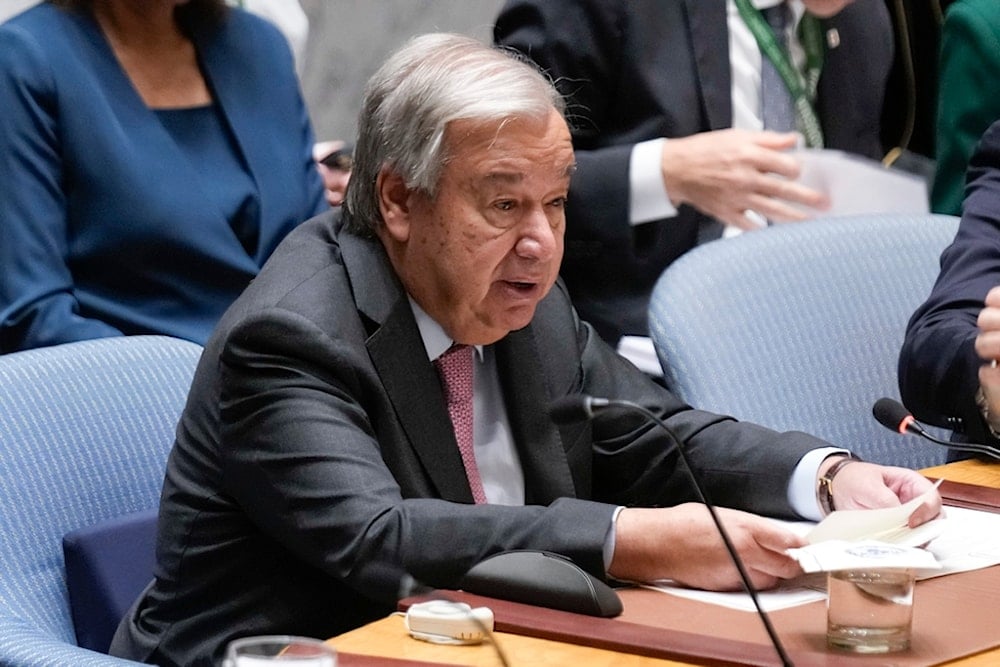UN alarmed by situation in Lebanon, opposes any ground invasions
The UN spokesperson says Secretary-General Antonio Guterres "remains deeply concerned about the humanitarian consequences of the events that are unfolding in Lebanon."
-

United Nations Secretary-General Antonio Guterres speaks during a Security Council meeting at United Nations headquarters, Wednesday, September 25, 2024. (AP)
The United Nations voiced deep concern on Monday over the deteriorating situation in Lebanon as Israeli attacks intensify, underscoring its opposition from "Israel's" reported plans for a ground invasion of the country.
The Israeli occupation military announced the launching of what it called a "targeted and limited" incursion focused on Hezbollah targets and infrastructure in a number of southern Lebanese villages along the border.
UN Secretary-General Antonio Guterres “remains deeply concerned about the humanitarian consequences of the events that are unfolding in Lebanon," UN spokesperson Stephane Dujarric said during a press briefing.
Dujarric emphasized Guterres' call for all parties to exercise maximum restraint and to pursue de-escalation, while highlighting the importance of enforcing UN Security Council Resolution 1701.
Adopted on August 11, 2006, the resolution mandates the cessation of hostilities between Lebanon and "Israel" and the creation of a demilitarized zone between the Blue Line (the de facto border) and the Litani River.
Only the Lebanese army and the UN Interim Force in Lebanon (UNIFIL) are authorized to possess weapons or military equipment within this zone.
Dujarric added that Guterres and his team are actively engaging with stakeholders on the ground and are committed to seeking diplomatic solutions.
However, he pointed out that UN personnel operating along the Blue Line have faced constraints due to the escalating fighting.
Highlighting the impact on civilians, Dujarric announced that a new humanitarian "flash appeal" would be launched on Tuesday to mobilize additional resources to address the needs of approximately one million people affected by the crisis, including those displaced from South Lebanon.
When asked whether the UN would urge "Israel" to halt any ground invasion, Dujarric responded, "The secretary-general has called (for this) and will continue to do so. We do not want to see any sort of ground invasions."
Since September 23, Israeli occupation forces have launched a massive aggression on Lebanon, conducting extensive airstrikes across the country, especially its South and East, as well as the Southern Suburb of the capital Beirut, where Hezbollah Secretary-General Sayyed Hassan Nasrallah was assassinated.
According to the Lebanese Ministry of Health, the Israeli strikes have killed over 900 people and left thousands of injuries.
Read more: UN chief calls for end of 'violence' on Lebanon, ceasefire in Gaza

 3 Min Read
3 Min Read








